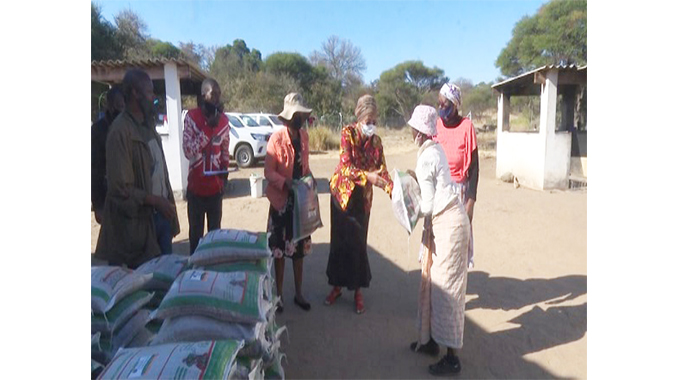COMMENT: Rural economy a gateway to Vision 2030

The news that Government has identified Bubi-Lupane Irrigation Scheme in Lupane, Matabeleland North, as a pilot project for an integrated business model to be replicated by 450 irrigation schemes across the country is sweet to the ears of rural development scholars and activists.
The 180 hectare Bubi-Lupane Irrigation Scheme is a community project, which Government, through the Agricultural Rural Development Authority (Arda), is reviving.
Said Lands, Agriculture, Fisheries, Water and Rural Resettlement Minister Dr Anxious Masuka: “We want to increase the viability of Bubi-Lupane Irrigation Scheme through an integrated business model. We want the scheme to be the leading example of an integrated business model that will be replicated in 450 irrigation schemes across the country.
“As Government, we want all the 450 irrigation schemes to have business managers and run as a business. We have many other districts that are waiting for this kind of investment, but we can’t go there until we get this right so that when we go elsewhere, we just replicate the model.
“Bubi-Lupane Irrigation Scheme must be an example where we can bring anyone who doubts the model to come and see that this is how you develop the community. That is why we have restructured Arda. It has the estates side of things, but also has rural development through agriculture where you do value addition and beneficiation and begin to create rural industries.”
Improving the quality of life and economic well-being of people living in rural areas is the gateway to an upper-middle income economy. It is the gateway to Vision 2030.
In China, for example, rural development which started in 1949 has been based on land reforms and mechanisation of agriculture.
Today, China is on the verge of being the world’s second superpower. And according to CNN, “US-China rivalry is extending from Earth into space”. . . as “last month, it (China) became the only country after the US to put a functioning rover on Mars”.
For China, it all started in the rural areas. Zimbabwe’s economy is also agro-based, and was so even before colonisation.
It is, therefore, commendable that the Second Republic is accelerating rural development and industrialisation.
Irrigation, according to the Food and Agriculture Organisation (FAO), is not only a key drought mitigation measure, but also a vehicle for the long-term agricultural and macro-economic development of a country.
Food security is key to peace as it is to development. Climate change has taught us that we can no longer rely on rain-fed agriculture alone.
Also, beneficiation is easier for irrigated crops as yields are better and more predictable in terms of both quality and quantity.
The integrated business model for irrigation schemes in Zimbabwe will help turn rural agriculture into a fully fledged business that will not only employ and feed millions, but will finance infrastructure and social development.
Exports will also increase and the foreign currency generated will go a long way in facilitating the completion of Government programmes.
We hail the Second Republic’s vision as a number of irrigation schemes were underutilised and where they were working, they were not being run as a business.
The integrated business model for irrigation schemes is a low hanging fruit in the agriculture sector that can go a long way in changing the
lives of Zimbabweans for the better. It is a dream just like the Chinese dream to transform agriculture in 1949.











Comments